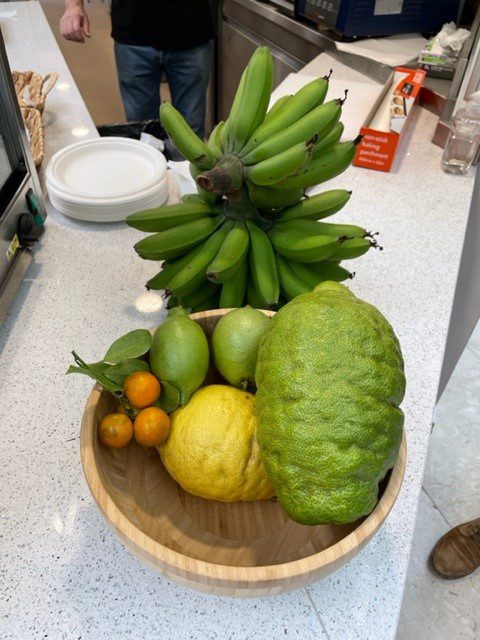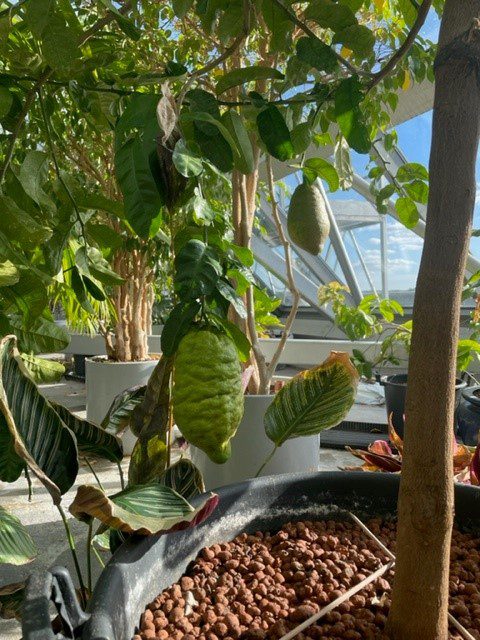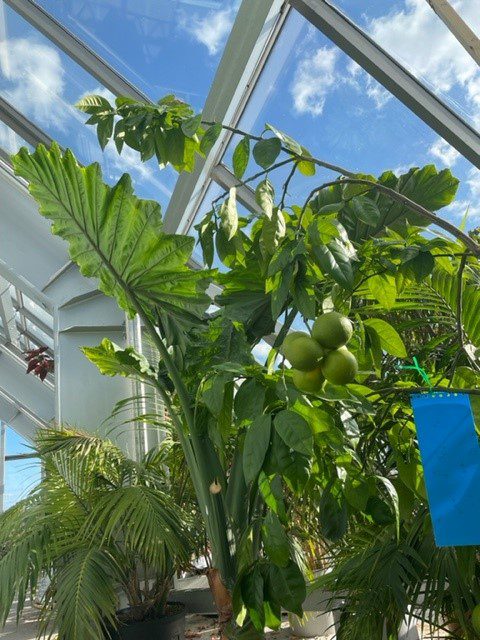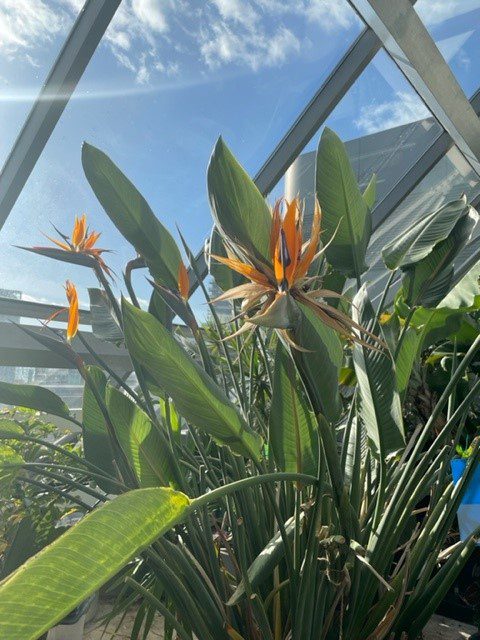Trees laden with bananas and lemons are an unexpected sight on a visit to Basingstoke, but at Matrix House, Basing View, these tropical fruits have become a blooming attraction.
Known for its striking atrium, the building features established trees that have been growing indoors since the late 1980s. Over the past decade, the atrium has also become home to a variety of fruit trees, which are now bearing tropical fruits including papayas, lemons, bananas, dragon fruit and limes.
Located on the fifth floor of the 95,000 sq. ft Workman-managed office building, the tropical fruit trees bear produce which is harvested for use within the Atrium Café and eaten by occupiers’ employees, as reported in the local news.
Growing the trees is possible thanks to the south-facing atrium, which provides the fruit with warm temperatures and sunlight throughout the day, regardless of season.
Pocket garden improves wellbeing
Phil Talhadas, Workman’s building manager at Matrix House, says people love sitting near the fruit trees. Indeed, the indoor plants and trees – forming pocket gardens within the building – are designed to help improve people’s wellbeing, especially as winter approaches.
Jim Brownlie, who runs the Atrium Café and looks after the fruit trees, told the local news: “I love looking after the plants and people in the building love the plants, it really has become more of a hobby than a job.”
The office space at Matrix House office space is arranged around the atrium facility, with two office blocks forming an L-shaped structure, where floors are connected by glass-clad link bridges overlooking the stunning atrium. Current occupiers include Sun Life Financial of Canada, Handelsbanken, Diligenta, CGI Group and TAC Europe.
What is a pocket garden?
Pocket gardens are generally characterised as displays occurring within indoor or outdoor spaces that may otherwise remain bare. They provide a wow-factor, decorate private retreats, and break up the monotony of large fences and paved patios.
Pocket gardens can be planted virtually anywhere – from empty wall spaces to shaded terraces. And, of course, adding plants to under-utilised spaces is not only good for the environment, but also for the wellbeing of occupiers.







